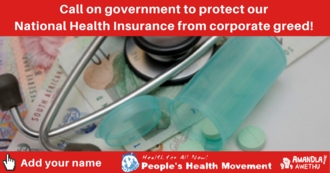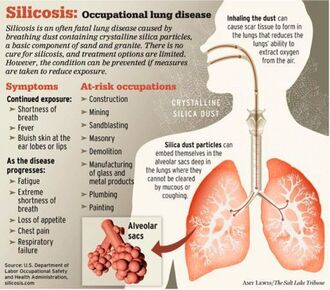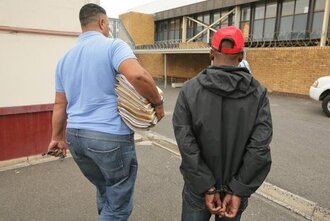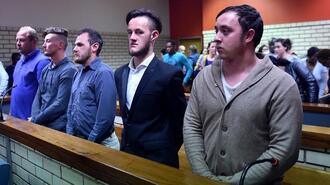- Featured
- Clean air
- Climate justice
- Consumer Rights
- Corporate Accountability
- Data access
- Early Childhood Development
- Economic fairness
- Education
- Electoral fairness
- Environmental justice
- Food justice
- Gender based violence
- Grants/social assistance
- Health
- Housing and infrastructure
- Industry interference
- Land Justice
- LGBTQIA+ rights
- Media/ information access
- Public transport
- Racism
- Reparations
- Safety
- Sanitation
- Service Delivery
- Sexual and Reproductive Rights
- Social justice
- Unemployment
- Womxn's rights/ gender equality
- Workers' rights
- More
-
STOP LIBYAN SLAVE TRADE!This is important because no human being should ever suffer the injustice of being tied down like an animal. We have a responsibility to shield the world's vulnerable peoples. We have a responsibility to stop tyranny in its tracks. The overt racism diaplayed here is deplorable. The fact that all the slaves to be sold are Black African suggests an even more horrible statement. NO TO SLAVERY ! SLAVERY IS AFRICAN HOLOCAUST !3,049 of 4,000 SignaturesCreated by Mogau Lamola
-
Release the Fees Commission reportThe Minister of Finance is schedule to table the medium-term budget on Wednesday, 25 October 2017. This is an opportune moment for government to announce a favorable stance in response to demands made by Fees Must Fall. The "no-fee varsity" report, which the amandla.mobi community successfully mobilised for it to be made public, set out 12 recommendations showing how free university education for students from low income households can be provided. These recommendations have not yet been implemented. Just last week, President Zuma reshuffled his Cabinet and removed Dr Blade Nzimande as Minister of Higher Education. This is a critical time for the report to be released and to allow all stakeholders to engage with its contents. Join the campaign to demand President Jacob G. Zuma, immediately releases the Fees Commission report to the public.399 of 400 SignaturesCreated by Amandla.mobi Member
-
Support the #UFSShutdownThese issues we raise relate to the academic, physical and socio-economic well being of students. The university is mandated to work on achieving these goals. Your support is required to pressure the university to take decisive actions in ensuring it does so. The university must declare no increment, a revised timetable, its support for our cause, the provision of free WiFi and the accreditation of student accommodation. We can no longer allow UFS students to be exposed to these issues.1,267 of 2,000 SignaturesCreated by Tshiamo Malatji
-
Release the 13 persons arrested by the Tanzanian PoliceThe arrest in Tanzania last week of 13 people accused of the “promotion of homosexuality” has been called “a terrible human rights violation” [1]. Two of those arrested are from South Africa and include well-known human rights lawyer, Sibongile Ndashe, executive director of the Initiative for Strategic Litigation in Africa (Isla). The arrests took place in Dar es Salaam last Tuesday when the Tanzanian police raided a legal consultation meeting, convened by Isla and Community Health Services and Advocacy (Chesa). "The group was arrested while preparing for a case challenging the Tanzanian government’s decision to ban drop-in centres that served people particularly at risk of contracting HIV. This was according to the National Association of Democratic Lawyers (Nadel), which released a statement at the weekend." [2]. Nadel’s publicity secretary, Memory Sosibo, said the actions by the Tanzanian law- enforcement agencies were a clear attempt to instil fear among those who wished to legally challenge the actions of Tanzania’s government. [1] https://mg.co.za/article/2017-10-22-sa-human-rights-lawyers-arrested-in-tanzania-for-promoting-homosexuality [2] https://www.iol.co.za/capetimes/news/south-africans-detained-in-tanzania-for-promoting-homosexuality-11663994924 of 1,000 SignaturesCreated by Amandla.mobi Member
-
Remove Vetus Schola from CPUTAlthough there may be wide and reasonable disagreements with respect to both the goals and tactics of the student movement for free, quality and decolonised education, as well as the goals and tactics of university managements, the securitisation of campuses can never be an effective way of resolving differences. Such securitisation can and has already has caused bodily harm and trauma to protestors, by-standers, academics, support staff and security personnel themselves, while further exacerbating fear and mistrust, thereby polarising positions and undermining academic freedom. It is unreasonable and unsafe to expect students, academic staff and support staff to continue the academic project under these conditions. Moreover, it is antithetical to the pursuit of a negotiated solution that will enable the completion of the academic year successfully. Academics and concerned persons, please sign the petition with your name and affiliation.1,439 of 2,000 SignaturesCreated by Amandla.mobi Member
-
Wits University, fire KPMG nowAuditing firm KPMG is in the news, after withdrawing their report into the so-called ‘rogue unit’ of SARS [1]. The allegations made in the report led to the removal of senior SARS investigators who were investigating money laundering and tax evasion. KPMG also reportedly helped divert R30 million tax payers’ money meant for a Free State government empowerment project to fund a wedding [2]. Wits University describes itself as an institution with a “commitment to social justice”, yet continues to do business with firm that enabled theft from the public- crimes which divert money from much needed services. As a publicly funded institution itself, Wits University knows the damage caused by this. The Independent Regulatory Board for Auditors (IRBA) a body tasked with protecting the public, has launched an investigation into KPMG. But the harshest sanction the IRBA can impose is a R200 000 fine [3], an amount that is a slap on the wrist considering the cost of the damage caused by the auditing firm. While 6 senior executives, its CEO and chair have resigned, this is not enough. Already companies like Sygnia have dumped the auditing firm [4], let us demand that Wits University joins them. KPMG shouldn’t be profiting from any public institution. [1] SARS vows to take legal action against KPMG over withdrawal of 'rogue unit' report, Kyle Cowan for TimesLive. 18 September 2017. [2] #GuptaLeaks: The Dubai Laundromat - How millions from dairy paid for Sun City wedding, amaBhungane and Scorpio. 30 June 2017. [3] Audit watchdog sharpens its fangs, Lisa Steyn for Mail&Guardian. 11 Aug 2017. [4] Sygnia axes KPMG over Gupta links, Business Day. 28 July 2017.86 of 100 SignaturesCreated by Amandla.mobi Member
-
Oppose bail for Bronkhorstspruit accusedRacism continues unabated in South Africa. Just recently, we heard of the coffin assault case, farmers 'mistaking' humans for monkeys and firing at them. If we are to put an end to racism, then we need to ensure that all race-related cases brought before the courts are dealt with the the contempt they deserve and that perpetrators are brought to book. With a history of oppression and racism, South Africa needs to send a strong message that such behaviour is frowned upon and will meet the full might of the law. The dou assaulted and threatened to kill a nine-year old girl. The girl is reported to have given a statement where she outlines what transpired. “While we were looking for our dogs, we saw white males. We then decided to hide in the trees, but the white males approached us. I ran; that’s when I fell and I saw one of the man carrying a big gun. He reached out and grabbed my arm,” the girl said in her statement. “And then the man slapped me with an open hand I fell to the ground. He then ordered me to jump the fence to go to the tree near the house. He then slapped me again with an open hand,” she added. Source: They shot at me as I ran away, says girl aged 9, Mathlatsi Dibakwane for Independent News. 13 September 2017.28 of 100 SignaturesCreated by Amandla.mobi Member
-
Tell Minister Cele and Shaun Abrahams to charge tax evasion criminalsParliament’s Finance Standing Committee wants drastic action to tackle illicit financial flows in Mzansi [1], but it turns out that SAPS and prosecutors are failing to act. If we put enough pressure on Police Minister Mbalula, however, we can ensure that authorities prosecute contraventions of exchange control regulations referred to them, and that those hiding billions overseas answer for their crimes. Just recently, the Statistician-General published a report detailing poverty levels in Mzansi [2]. This report states that more than half the population live in poverty. This is a tragedy given that Mzansi loses billions each and every year due to illicit financial flows (IFF). Global Financial Integrity (GFI), a leading research institution on IFFs, recently estimated that illicit financial outflows from South Africa between 2005 and 2014 could represent as much as 14% of total trade. Between 2003 and 2012, GFI estimated that $122-billion in IFFs was transferred out of the country [3]. But we have made progress. Because of our campaigning for tax justice, our government is about to roll out country-by-country reporting [4]. Despite this, it is unlikely that those responsible will face prosecution anytime soon with the SAPS not taking any action against those who are guilty. If SAPS and the NPA were to prosecute those guilty of tax evasion and tax avoidance, this would be a great step in ensuring that those responsible are brought to book. Working with Treasury, they can ensure that the necessary steps are taken so that Mzansi brings an end to illicit financial flows. [1] Interministerial Committee To Probe Illicit Financial Flows, Staff Reporter at Huffington Post. 2 Aug 2017 [2] Poverty Trends in South Africa: An examination of absolute poverty between 2006 & 2015 [3] [4] Parliament: Illicit financial flows and the history of disappointment, Greg Nicholson for Daily Maverick. 2 Aug 2017.215 of 300 SignaturesCreated by Amandla.mobi Member
-
Defending a People’s National Health Insurance – quality health for all, not private profitThe SA National Department of Health (NDOH) is establishing the National Health Insurance (NHI) to achieve universal access to quality health care for all who live in South Africa. We welcome the commitment from the NDOH to a NHI based on principles of equity, health as a right and redress of past inequalities. The White Paper on the NHI makes it clear a ‘Single Payer’ system is the best way to achieve this. The recent NDoH documents have jettisoned these principles of equity and human rights in how it has set up Task Teams, Advisory Committees and Working Groups to ‘implement’ the NHI. The Terms of Reference for these structure now introduce protections for the medical schemes and private sector actors that are not present in the White Paper. If implemented, they will exacerbate inequality in the health sector. Also, the composition of the Committees prescribed in the Government Gazette is dominated by the private sector and other special interest groups – with almost no participation by civil society, which is present on only one of the 7 structures. Instead, we see committees loaded with representatives of Medical Schemes, Actuarial Society, Private hospital groups, Health professional societies, Academic and research organisations. Almost all of these groups have a vested interest in keeping the health system largely the way it is and many of them are directly responsible for the fundamental health system inequalities that the NHI is meant to address. This is elite decision-making at the expense of ordinary South Africans – it isn’t democratic or logical to reserve decision-making for those who stand to benefit directly while keeping ordinary South Africans in the dark. It is crucial we keep the ‘Single Payer’ principle so that all people (employed, unemployed, civil servants and all) are treated equitably in paying into and receiving benefits from the NHI. We reject an unequal and fragmented system, which is against the progressive principles of previous planning documents for the NHI. Has the private sector and vested interests captured the NHI through secret lobbying? We reject a NHI driven by technocrats and people with direct conflict of interest in designing the implementation of the NHI. We will not accept our public health system, with all its faults, being sold off to private interests so they can secure an NHI favourable to their profits. South Africa belongs to all who live in it – all South Africans have equal status and rights to influence decisions that will affect them and their children for generations. We say no to corporate capture of the NHI. We want an accountable NHI and an accountable Health Ministry that does not say one thing in a White Paper and do the opposite behind closed doors. We will not stand back and allow this shameful co-option of the NHI by a powerful elite. We call on all individuals and Civil Society organisations to insist that our leaders and the Department of Health officials are accountable and keep to the policies they have said they would advance. Forward to a People’s NHI, forward!474 of 500 SignaturesCreated by People's Health Movement

-
Deliver fair compensation for miners with silicosisZwelakhe Dala passed away on 30 March 2015. His death certificate just states that he died of natural causes. He was 55 years old and was suffering from silicosis. Zwelakhe’s widow, Nosipho, is but one of hundreds of thousands of families who stand to benefit from the class action lawsuit brought against the likes of Anglo American, Gold Fields, AngloGold Ashanti, African Rainbow Minerals, Sibanye Gold and Harmony Gold. Zwelakhe is one of thousands of workers suffering from silicosis-related diseases. In May last year, the South Gauteng High Court ruled in favour of mine workers who intend on launching a silicosis class action. The case was granted a class action certification which will make it the largest class action ever to be certified in South Africa, allowing hundreds of thousands of gold miners and their families to seek redress against gold mining companies. Below is a summary of the facts pertaining to the settlement plan: Last year, the gold mining companies launched an appeal against the court decision to allow miners suffering from silicosis and TB to fight for compensation as a group. The High Court ruled on June 24, 2016, to allow workers and families who’ve been affected by Silicosis and TB to file a class action suit against gold companies. The biggest gold producers – African Rainbow Minerals, Anglo American SA, AngloGold Ashanti, Gold Fields, Harmony, and Sibanye – are trying to negotiate a settlement, involving the departments of Health and Mineral Resources and the mine workers’ representatives. This would involve setting up a trust fund to pay “top-ups” to workers who have already been paid compensation. It would also involve bringing mine workers under the Compensation for Occupational Injuries and Diseases Act (COIDA) and the Department of Labour, instead of the Occupational Diseases in Mines and Works Act (ODIMWA) and the Department of Health. This would prevent any future civil claims by mineworkers for damages for employer negligence causing silicosis and TB. The mining companies’ choice to use appeals to delay any trial on the merits of the case for as long as possible while they manage a negotiation process away from judicial oversight is an underhanded move aimed at undermining its role, and shortchanging the claimants and their families. We have seen evidence of this in earlier settlements where 4 365 workers were paid a maximum of R464 million [1] by Anglo mines. When this figure is divided amongst the number of workers claiming it averages to a measly R106 300 per claimant. There is also a real possibility that not all claimants will be paid based on tests of a random sample. Just recently, Anglo American announced a $101m (R1.3bn) “best estimate” for settling its liability in the now 13-year-old legal battle to compensate mine workers suffering from lung diseases [2]. This also coincided with Gold Fields announcing its provision for a settlement amounting to $30.2m. We need to ensure that other gold mining companies implicated stop the delay tactics and pay mine workers compensation. [1] Silicosis claims: Anglo has to cough up nearly R500m, Dewald van Rensburg for News24. 6 March 2016. [2] Mines make room for silicosis settlements, Dewald van rensburg for News24. 30 July 2017.23 of 100 SignaturesCreated by Amandla.mobi Member
-
Harsh sentence for Sikhangele Mki"The convicted serial rapist carried out a reign of terror in Delft and Khayelitsha. He says his modus operandi would be to follow his victims and grab them and threaten them at knife point. He would hold the knives against their necks and demand money and their cellphones. He says he would take his victims to an isolated place and then rape them. [1]" South Africa is engulfed with incidences of abuse against women and children. While a harsh sentence won't undo the psychological and physical trauma of his crimes, it will surly send a strong message to other perpetrators that such behavior is not welcome. Please join the protest action outside the court on 5 September 2017. [1] Serial rapist pleads guilty to raping minors, Genevieve Serra for Independent News. 18 May 2017.28 of 100 SignaturesCreated by Amandla.mobi Member
-
Oppose bail and issue maximum sentence for KFC assaultJacob and Dudu Sono, the victims, were assaulted when they asked the driver of the car in front of them to move forward in the drive-through. The five men named Stephan Nel, 39, Marius Harding, 23, DJ van Rooyen, 21, Ockert Muller, 20, and Joshua Scholtz, 21, had ordered and were supposed to fetch their food at the next window. In the video [1], the attackers could be heard swearing at Jacob and his wife. The men face charges of attempted murder, assault with intent to do grievous bodily harm and pointing a firearm [2]. One of the accused, Ockert Muller, has already been granted bail while Marius Harding, who already has previous assault convictions, has abandoned his bid for bail. Incidents of assault across racial lines have been frequently reported on in the media, and unless we send out a strong message of condemnation, they are likely to keep happening. The Coffin Assault incident, which is currently before the courts, is evidence that perpetrators of these incidents are racist and not remorseful for their actions. Deny bail and give a very harsh sentence to deal with these perpetrators. [1] https://twitter.com/tumisole/status/893486622708084742 WARNING: Graphic Content [2] #KFCAssault: Here are the accused, Sakhile Ndlanzi for Independent News. 11 August 2017.165 of 200 SignaturesCreated by Amandla.mobi Member
.png)
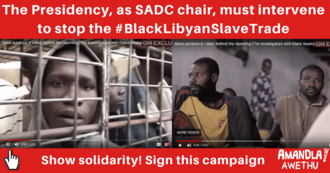.png)
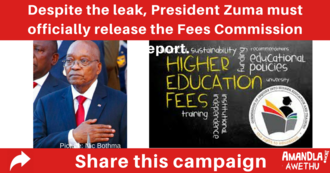

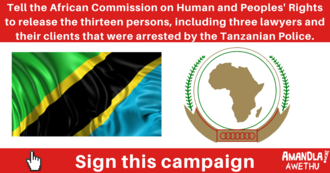.png)
.png)
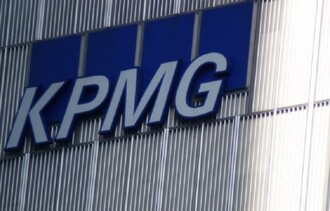

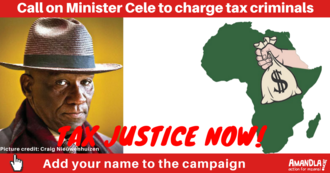.png)
